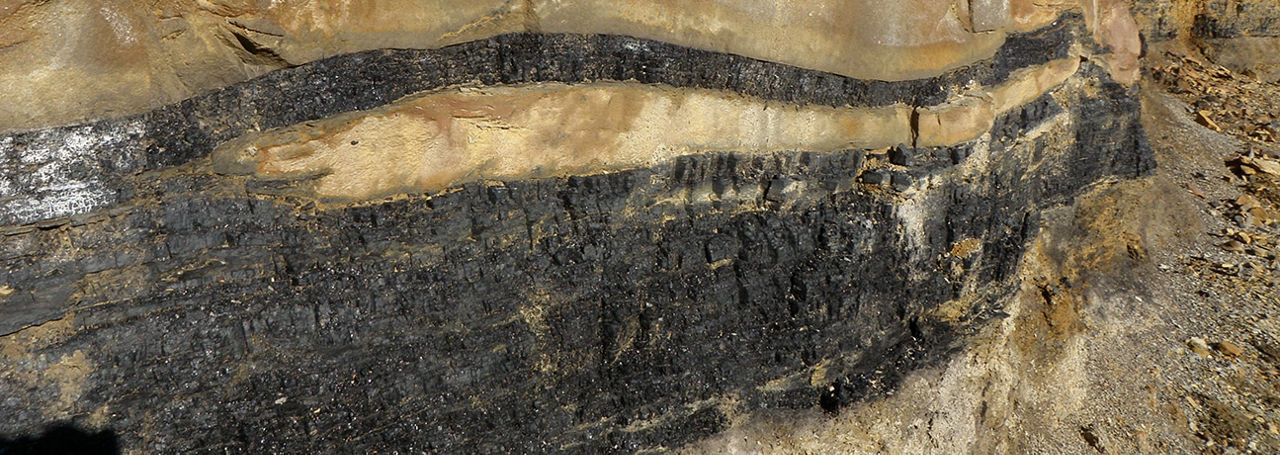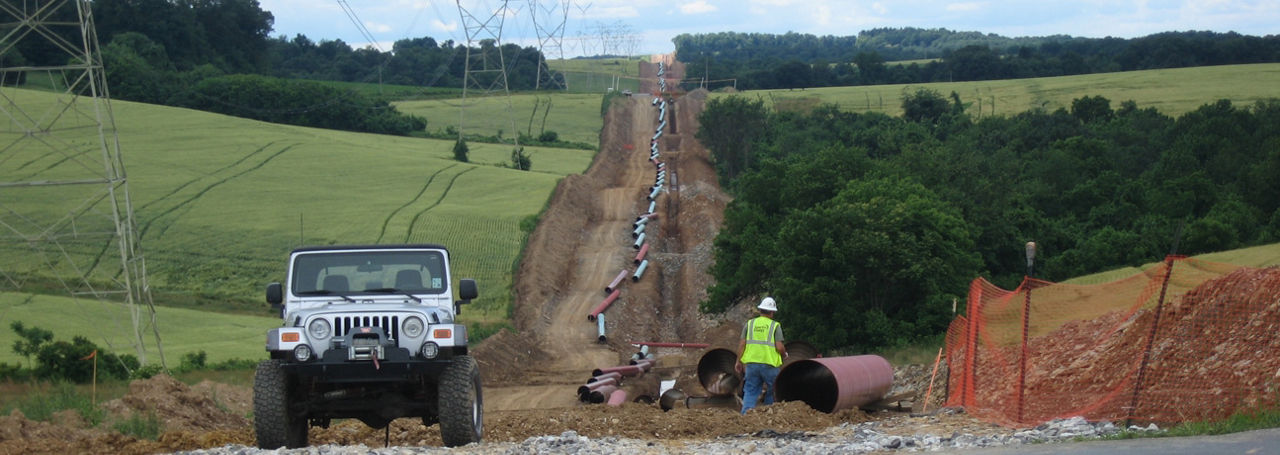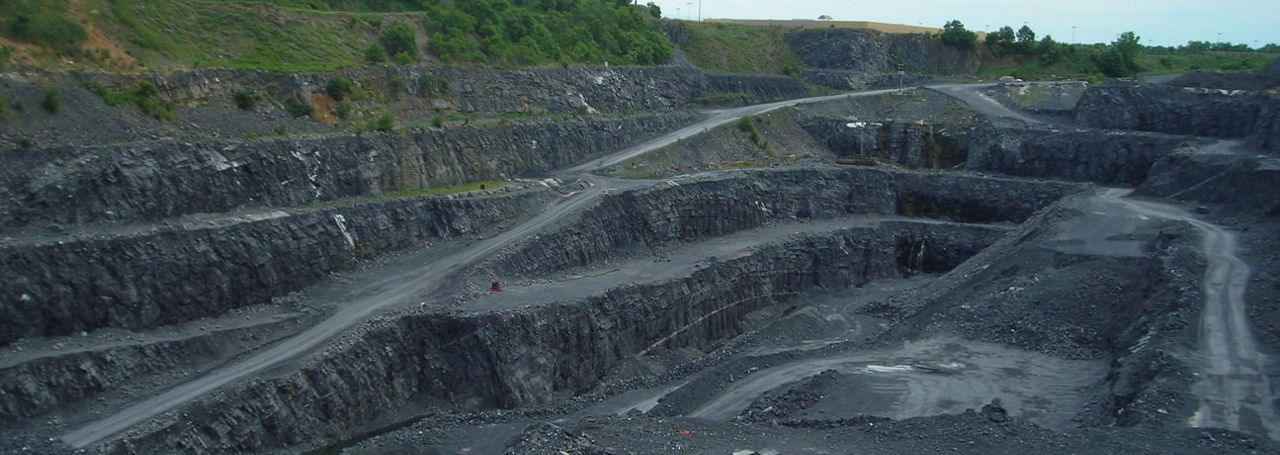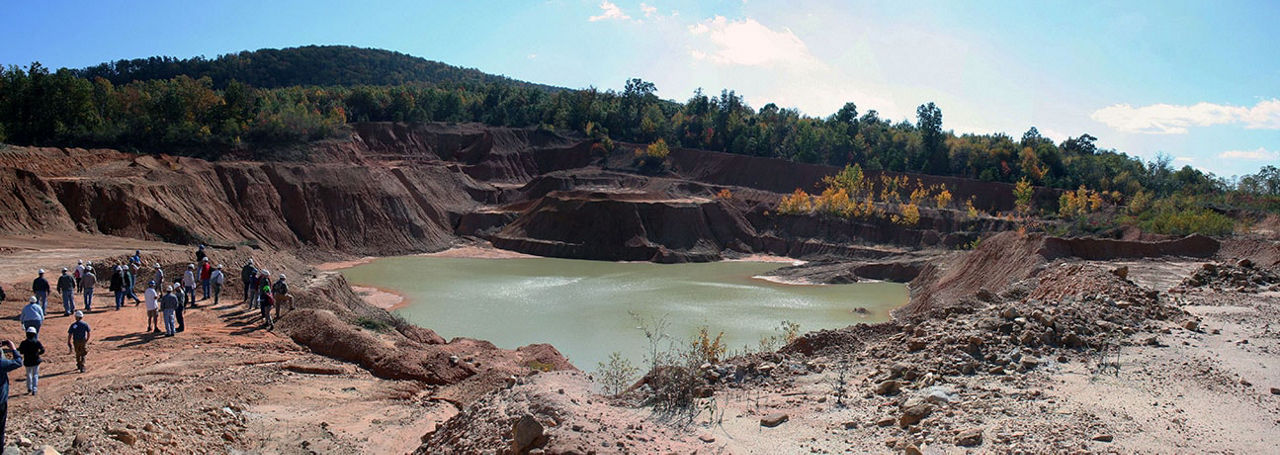Pennsylvania has a rich and diverse geologic history, and a corresponding wealth of fossil fuels and mineral resources including:
- Coal
- Oil
- Natural gas
- Methane from coal
- Metals
- Naturally occurring rocks and minerals used for aggregate, brick, cement, and other products

Coal
Coal
Methane from Coal
Methane from Coal
Mineral Industries
Mineral Industries
Oil and Gas
Oil and GasHistory of Geologic Economic Resources in Pennsylvania
The search for and extraction of geologic economic resources in Pennsylvania occurred as early as 11,000 years ago, when Native Americans harvested metamorphic rocks in Adams and Franklin counties to make hammers and other tools. Native Americans also used crude oil found in seeps along Oil Creek in Crawford and Venango counties for medicinal purposes more than 500 years ago.
By the late 1600s, Quaker settlers were using local shales and clays to make bricks to build their homes.
During the 1700s, the mining of iron, lead, copper, and other metal ores met the needs of a burgeoning colonial society for items like cannons and ammunition, nails, stoves, and other household items.
Pennsylvania coal was first mined in the Pittsburgh area as early as 1761, and the 1859 completion of Drake’s oil well in Titusville, Pa., gave rise to the modern petroleum industry. Both of these industries have supported Pennsylvania’s economy ever since.
In the 1950s, uranium and thorium were mined in Pennsylvania as potential source materials to build nuclear weapons.
Major growth in methane produced from coal, an unconventional source of natural gas, occurred from 1999 to 2008, turning a mining hazard into an energy source.
Future of Geologic Economic Resources in Pennsylvania
Modern society relies on fossil fuels and mineral resources that come from the earth. Advancements in the technology used to harvest these geologic resources and the development of new and alternative uses for these resources will lead to a bright economic future for our state.

